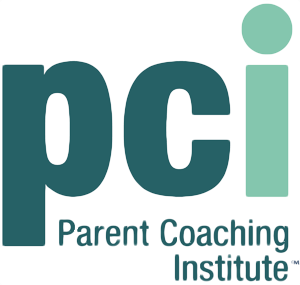Parenting Today: The World Has Changed, Have We?

by Gloria DeGaetano, Founder and CEO of the Parent Coaching Institute, author of Parenting Well in a Media Age, winner of the 2007 Best Products i-Parenting Award.
Once upon a time in 1980 there was a 30-year-old woman, pregnant for the first time. So filled with blissful anticipation, this determined mom-to-be set out to discover what would be best for her baby. She had no problem finding information on breast-feeding, sleeping through the night, introducing solids or the environmental realities of cloth vs. disposable diapers. But when she looked for what would be best for her baby's brain development, she couldn't find anything in the mainstream.
I was that mom. With no Internet, my research meant going back and forth to the university library, copying journal articles and distributing them to my women friends and colleagues at work—obnoxious in my enthusiasm, waving the research in their faces, saying, "Look at this! Can you believe it?"
I was stunned to find out, for instance, that the daily four hours U.S. kids spend in front of a television prevented proper growth of crucial neural circuitry, limiting their cognitive capacities for the rest of their lives. I was amazed to discover that the verdict on TV violence had been conclusive since 1976: violent images do contribute to aggressive behaviors, fear, and desensitization to real violence, creating a condition for an appetite for more and more violence in entertainment and in one's environment.
Over the years this research backed me up to make course corrections as I parented two rambunctious sons. For example, around 1985 Mr. Rogers started appearing twice a day—in the morning and in the afternoon. As a single working mother, I was so tempted to let my then five and three year-old boys visit the "neighborhood" both times. But I resisted. Their creative play was more important for their budding brains, and a once-a-day visit with Mr. R was plenty.
In 1986 those "new fangled" videos meant I could actually play a full-length feature film in my own family room. Outrageous! Imagine two whole hours to get work done around the house or just sit and stare into space with a cup of tea, uninterrupted. Luckily, the research prevented me from over-dosing on these "new" inventions—sometimes. The two-hour video was a godsend before company came and I scrambled to get all together at the last minute; when I had the flu or had office work to complete at home—mom's screen nanny to the rescue.
But, let's face it, back then my screen-machine temptations were nothing compared to what seduces parents in 2008: screens in SUVs; hand-held video games; "Mozart and Einstein videos" being pushed as good for infants; numerous choices in children's programming, videos and DVDs; computers designed specifically for teens; social networking sites that attract middle-school kids so they can belong to their peer group and "be cool," video games in restaurants, malls, theaters and anywhere families gather. Has the small screen finally conquered?
Consider a few statistics:
- According to Nielsen, more than 90 percent of U.S. homes have televisions on an average of eight hours and 40 minutes each day.
- Children ages two to twelve average four to five hours of television viewing each day.
- By age five, the average child enters kindergarten having watched at least 6,000 hours of TV.
- 67 percent of U.S. children under 12 have televisions in their bedrooms.
- By the time kids graduate from high school, they have spent twice as much time in front of television screens as they have spent in front of teachers in classrooms. (1)
Modern-Day Challenges
Never before in the history of parenting have we been challenged to parent alongside an industry-generated "culture" that impacts our children so profoundly. Specifically, parents are up against six challenges unique to today's complex screen-machine world.
- Global conglomerates influence us on an unprecedented scale.
Over the years multi-national companies have increased their hold on our kids. Judith Rubin, writing in an issue of Mothering, reminds us that "marketing professionals cross-reference, cross market and cross-pollinate products and entertainment. By intentionally blurring the distinctions between products, entertainment, school curricula and advertisements, marketers readily capitalize on young children's limited ability to differentiate between them." (2)
In the past, media companies were not nearly as influential as they are today. Twenty-five years ago as many as 50 companies owned the majority of the media. By 2001, six companies owned and controlled global media production and dissemination. (3)
- Community standards are being eroded through the co-opting of social institutions.
We can no longer rely on the social structure around us to reiterate our values to our kids. In fact, one of our biggest challenges as parents today is that too many societal influences are corporate clones. Many public schools, for instance, beam Channel One into the classrooms. In doing so, these schools implicitly add their authority to the commercial ads for junk food and violent video games the kids see each day. Corporations seek what they can get from the people. What they give and how they give is always based on monetary profit.
- Corporations market specifically to children and their inherent vulnerabilities with the intention of undermining parental authority and responsibility.
Corporations intentionally drive a wedge between the parent and child over a specified product. Parents who say, "No," and strive to set boundaries are seen as stupid and unfair. Today, the child's peer group may as well have an umbilical cord tied directly to global conglomerates, making them significant authorities in children's lives. Parents have to develop warrior spirits to become the primary authority for their own children!
- Lack of relevant information and a pattern of disinformation keep parents in a state of confusion.
Corporations spend millions each day to guide our attention in specific directions – often leaving out critical information important to parents.
For example, most parents I meet are unaware that the American Academy of Pediatrics (AAP) recommends one to two hours a day of all screen time (including TV, video games, videos and computers) for children ages two and older () and no screen time for babies and toddlers, birth to age two. In fact, some experts think the AAP's recommendation is not strong enough. Researchers Dr. Robert Hill and Dr. Eduardo Castro, writing in Getting Rid of Ritalin: How Neurofeedback Can Successfully Treat Attention Deficit Disorder without Drugs, recommend no television before the age of five. They emphasize, "We can say with confidence that excessive television, particularly in young children, causes neurological damage. TV watching causes the brain to slow down, producing a constant pattern of low-frequency brainwaves consistent with ADD behavior." (4)
- A screen-machine culture turns mass attention to sensational and mindless content, while downplaying and often deriding analysis and other higher-level thought processes.
A mechanism inside the lower part of the human brain actually causes us to look at the distorted or the weird. That means it's easier to pay attention to gratuitous violence, titillating sexuality and fast-paced action than it is to PBS, the History Channel, or the teacher in the classroom. When sensational forms of images predominate, selective attention processes—that is the brain's ability to filter out extraneous information and determine what is really important—do not develop easily.
- A screen-machine culture pushes a "machine-like" view of the world, treats people as objects and promotes a "quick fix" as the only way.
Sitcom characters solve dilemmas in less than 30 minutes. Commercials imply an end to malaise by purchasing a new car or the demise of depression with a new color of lipstick. Drug companies visually portray people having more joy in life with the intake of a pill. Constant images of quick fixes can influence our thinking about what works best for kids. For example, variances in growth are common in all living things. The surrounding culture, though, pushes parents to panic, worry and seek quick fixes if their children don't learn to read or write or count at the "right" time.
Aligning Our Priorities with Our Parental Decisions
Unfortunately, these challenges will be with us as long as we live in a mass media culture. But, on the positive side, once we name and understand these challenges, we can move in the direction of addressing them proactively. As parents we have lots of power to directly influence our children. In doing so, we indirectly change the society we live in. Thinking children will make wiser choices. Creative kids will improve upon the current system when their turn comes. So all is not lost—if we rise to the challenge to parent well in a media age.
But where to start? The problem can seem overwhelming.
Perhaps the very first step (and the biggest challenge?) is for us to realize that we are more influential than mass media—that parental daily decisions powerfully impact children and will determine what kind of adults they will become. When we compassionately nudge ourselves out of complacency, standing clear in our values and our priorities, our children benefit greatly.
It's not easy to parent well in a media age. But nothing less is going to get the job done. The only way out of the global, screen-machine saturation and the colonization of our children's minds is for us moms and dads to clearly convey to our children what we stand for. And then align each parenting decision with those beliefs. When that happens, we will begin to reverse those six challenges described above. We will move into new territory of using all forms of screen technology wisely, purposefully and to our benefits—no longer worried about screen technology's negative impact on our children. We will usher in a new world because we had the courage to change the old one.
References
- DeGaetano, Gloria. 2005. Parenting Well in a Media Age: Keeping Our Kids Human. Personhood Press.
- Ibid., p. 8.
- Ibid.
- Hill, Robert, M.D. and Eduardo Castro, M.D. 2005. Getting Rid of Ritalin: How Neurofeedback Can Successfully Treat Attention Deficit Disorder without Drugs. Hampton Roads Publishing Company, p. 36.
Gloria DeGaetano is CEO and Founder of the Parent Coaching Institute. For information about Gloria's keynotes and workshops, please contact Gloria DeGaetano by phone at (425) 753-0955 or at info@GloriaDeGaetano.com.
Copyright © 2008 Gloria DeGaetano, all rights reserved. Used with permission.
